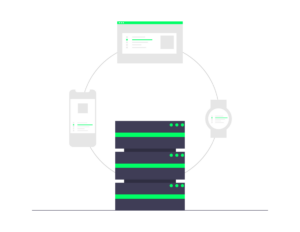About ALLEGRO ‘Agile ultra low energy secure networks’
 ALLEGRO aims at designing and validating a novel end-to-end sliceable, reliable, and secure architecture for next-generation optical networks, achieving high transmission/switching capacity
ALLEGRO aims at designing and validating a novel end-to-end sliceable, reliable, and secure architecture for next-generation optical networks, achieving high transmission/switching capacity
- with 10 Tb/s for optoelectronic devices and 1 Pbt/s for optical fiber systems
- low power consumption/cost
- with > 25% savings
- and secure infrastructures and data transfers.
The architecture relies on key enabling innovations:
- smart, coherent transceivers exploiting multi-band & multi-fiber technologies for P2P and P2MP applications, based on e.g., high-speed plasmonic modulators/photodetectors and programmable silicon photonic integrated waveguide meshes;
- loss-less, energy-efficient transparent photonic integrated optical switches, eliminating OEO conversions, e.g., with on-chip amplification in the O-band for datacom applications;
- a consistent approach to security, in terms of functional/ protocol architectures and communications, further improving QKD systems, enabling optical channel co-existence and researching on quantum-resistant (post-quantum) cryptography, developing systems based on physically unclonable functions; and
- a scalable AI/ML assisted control and orchestration system, responsible for autonomous networking, dynamic and constrained service provisioning, function placement and resource allocation, leveraging devices increasing programmability and overall network softwarization.
To achieve the target objectives and KPIs, ALLEGRO has defined a clear methodology ending in ambitious demonstrators. The consortium includes a good balance of industry and research/academia with know-how in complementary fields.
The results of ALLEGRO will be disseminated in leading conferences, events, and high-impact journals. They will have a concrete and measurable economic and social impact, contributing towards achieving key European objectives, reinforcing European leadership and digital sovereignty in the ongoing digital and green transition.
Project News
OFC 2025 Publication: Service-Constrained Resource Allocation in P2MP Metro-Core Networks
We are pleased to announce a new publication in OFC 2025: K. Christodoulopoulos, P. Soumplis, P. Kokkinos, A. Napoli, M. Hosseini, K. Yiannopoulos, and E. Varvarigos“Resource Allocation with Service Level Constraints in Point-to-Multipoint Metro-Core Networks”, Paper...
QCNC 2025: Hybrid Classical–Quantum ML for Large Datasets
We are pleased to announce a new paper accepted at QCNC 2025: G. Maragkopoulos, N. Stefanakos, A. Mandilara & D. Syvridis“Applications of Hybrid Machine Learning Methods to Large Datasets: A Case Study”🔗 Access the preprint here: https://arxiv.org/abs/2504.06892...
Introducing a Scalable Post-Quantum Authentication Framework (Tsili et al., 2025)
We are delighted to present our latest work: Antonia Tsili, Konstantinos Kordolaimis, Konstantinos Krilakis & Dimitris Syvridis“A Scalable Framework for Post-Quantum Authentication in Public Key Infrastructures”🔗 Access the paper: https://arxiv.org/abs/2504.12062...
QCNC 2025: Introducing a 3-User MDI-QKD Protocol
We are excited to share our accepted contribution at QCNC 2025: N. Stefanakos, G. Maragkopoulos, A. Mandilara, and D. Syvridis“A Measurement Device Independent Quantum Key Distribution protocol in the service of three users” 🔗 Access the preprint:...
OFC 2025 Paper: P2MP Resource Allocation under Service-Level Constraints
We’re proud to showcase our contribution to OFC 2025: K. Christodoulopoulos, P. Soumplis, P. Kokkinos, A. Napoli, M. Hosseini, K. Yiannopoulos, and E. Varvarigos“Resource Allocation with Service Level Constraints in Point-to-Multipoint Metro-Core Networks,” Paper...
OFC 2025: Optimizing Router Cost & Power in P2MP Metro-Core Networks
We are excited to highlight our recent publication at OFC 2025: P. Soumplis, K. Christodoulopoulos, P. Kokkinos, M. Quagliotti, A. Di Giglio, A. Napoli, M. Hosseini, K. Yiannopoulos, and E. Varvarigos“Optimization of Router Cost and Consumption in a...
CSNDSP 2024: Techno-Economic & Feasibility Analysis of P2MP in Metro-Core Networks
CSNDSP 2024: Techno-Economic & Feasibility Analysis of P2MP in Metro-Core Networks We are pleased to announce the publication of a new study: P. Soumplis, K. Christodoulopoulos, P. Kokkinos, A. Napoli, M. Hosseini, M. Quagliotti, E. Riccardi, A. Pagano, K....
ICTON 2024: Optimizing Light-Tree & Edge Resource Placement for Latency-Aware Networks
We are proud to present a new paper from ICTON 2024: P. Soumplis, K. Yiannopoulos, K. Christodoulopoulos & E. Varvarigos“Optimizing Light-Tree and Edge Resource Placement for Diverse Latency Needs”🔗 Access the full paper: 10.1109/ICTON62926.2024.10647872 Abstract...
ICTON 2024 Invited Paper: Programmable Photonic Chips for Flexible Optical Networks
We are proud to highlight our invited paper presented at ICTON 2024: M. Lawson, M. Ali, M. Radovic, N. Sambo, R. Casellas, F. Cugini, M. Svaluto Moreolo, and A. Santome-Valverde“On the Control of Multi-Function Reprogrammable Silicon Chip for ROADMs and Sliceable...
Integrating CV-QKD with Classical Channels: Insights from ICTON 2024
We are pleased to showcase our invited paper at ICTON 2024: Masab Iqbal, Michela Svaluto Moreolo, Arturo Villegas, Laia Nadal, and Raul Muñoz“Continuous Variable Quantum Key Distribution Coexisting with Classical Channels,” ICTON 2024.🔗 Access the paper:...
